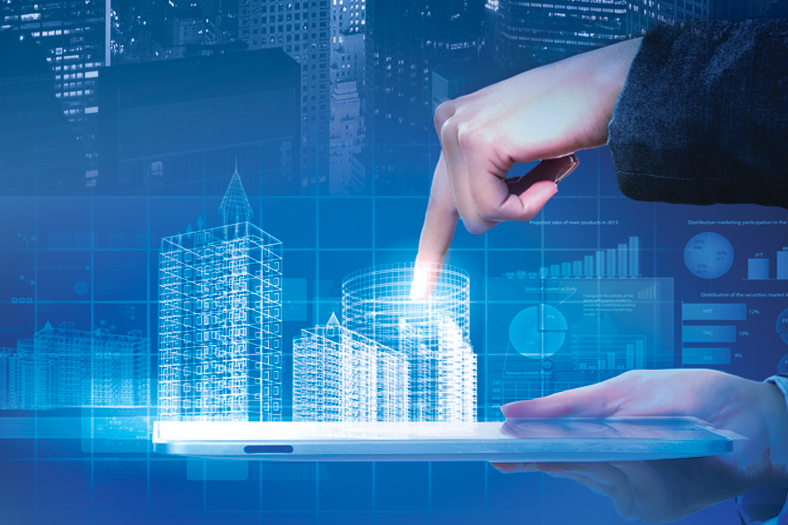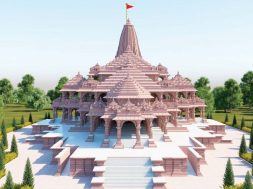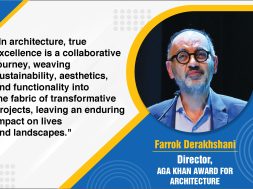100-Smart City: A reality check

Is the concept of smart cities in India a far from reality?
India’s Prime Minister Narendra Modi announced the flagship smart city project in the year 2015. According to reports, the target of launching this determining programme was to create 100 smart cities, which would have smart street poles, smart transit management system, e-pathshalas and so on to simplify the life of people living in those cities and also to set a model for other cities to follow the same.
Each smart city will receive Rs 500 crore over the period of 5 years by central government. The state governments are also required to match the contribution of central government. However, the issue is that this particular amount is not sufficient. Currently various stakeholders are working out ways to create a self-sufficient and sustainable fund for to take the smart cities out from pilot phase to the execution and then to the completion phase. Many private firms are also coming forward to fund this initiative, but there needs to be a proper process and channel in which this can be streamlined.
Urban migration was one of the prime reasons to build those smart cities, where in some 30-40 years of time we are anticipating in having a domestic rural-urban migration in India of over 300 million people. To be precise, it signifies that whatever pains we are bearing now to ease the difficulties having in urban cities is not enough.
Many new technologies assigned for this project are still in pilot phase and using them is expensive. Also, a lot of technology is borrowed from other countries which are making it expensive to use. Overall, these technological limitations are increasing the cost and hindering the success of smart city project. Challenge also lies in technology discovery and the need for a medium which can bring the technology users and the technology creators onto a single platform for faster adoptions.
A smart city has to be built on two layers; the underlying layer is infrastructure while technology works as the top layer. However, Ar. Ateet Vengurlekar, Principal Architect and Interior Designer, Blue Arch Interiors & Architect thinks, improving infrastructure is going to be one of the biggest challenges for authorities.
When asked about if the concept of smart cities in India is far from reality Ar. Vengurlekar says, “At a time when the proposal of a ‘smart city’ rules policy discourse, the nation is being faced by means of an exceptionally true urbanisation challenge. And thus not only me, but renowned Infosys co-founder N R Narayana Murthy is also saying that India is ‘far, far away’ from its goal of having the smart cities. There exists a rift between ideas of such smart cities that are taken from the western country, and the urban development and planning that is essentially being done.”
The concept of smart cities may have garnered attention in our country only recently, but the philosophy is not new, believes Vibhor Mukul Singh, Principal Architect & Proprietor, Designers’ Alcove For Art & Architecture. The term however, to be very honest, is being used by people of our industry in several ways to denote an urban set-up. Each one claiming that their version is correct. And this is the reason why currently judging the performance of a city on the scale of ‘smartness’ becomes difficult. He says, “If we stick to the most widely used definition, a smart city is a highly sophisticated urban setup where both, the humans as well as the infrastructural resources rely on digital ICT framework for their sustenance and management. It becomes inevitable, in that case, for any city to have a well-planned, strongly connected and aptly monitored network of sustainable, green, actively and passively well-designed buildings and spaces. Many would argue that the definition is subjective and is different in Indian context. But my question, in that case, would be had the term smart cities not been coined, was it then not our responsibility to make our cities clean and green and sustainable anyways? So why change the logic and the meaning?”
Singh strongly feel that the concept of smart cities can very well be realised in India, but only if one are sure of what it actually means and where does one intend to take this.
On the other hand Ar. Prem Nath, Prem Nath & Associates says, “I have a strong reason to believe that, the concept of smart cities in India is far from reality. Smart cities being developed today are a collection of smart homes and workplaces with intelligent building management systems in place. These intelligent building management systems help better manage all resources in an optimum manner. All of this comes at the cost of burning fossil fuels. It doesn’t focus entirely on the use of renewable energy and sustainable building design methods.”
With advancement in information technology and communication, these smart cities are mainly governed by Wi-Fi networks, routers, interactive boards, GPS, VOIP, etc. There is an increased online communication leading to a decreased human face to face interaction. Besides, these cities are entirely dependent on automation. Various software and hardware companies are using smart city development as a means to promote their own individual branding and vested interests without understanding its effects on human well-being. “Thus, smart cities are ending up being robo-cities controlled by the recent surge in information technology,” points out Ar. Prem Nath.
“As users, we tend to think of our cities as centres of continuous evolution. However, in the past century, the idea of a city has undergone several tectonic shifts, resulting in a dramatically diverse conception of our urban environments. Whereas the fabric of our cities was once determined by geographical and climatic conditions, global cities now seem self similar in their appearance and experience. It is that loss of cultural identity, and subsequent bland homogeneity which is celebrated by the new fangled smart city; an idea that perhaps needs a little more evolution before it can be applied en masse to a developing nation like India,” says Amit Khanna, Founder & Design Principal, AKDA.
There is always a lag from the time a policy is announced to its implementation and consequently its fruition and the smart city concept is certainly no exception to this fact. Smart cities rely on both local, state government and central government funding in order to make it smart. “Monies for the cities and municipalities that were selected have started being deployed specially in creating suitable infrastructure, which is the backbone of a smart city,” states Rohit Poddar, MD, Poddar Housing & Development Ltd.
To qualify as a smart city, it needs to already have includes civic amenities such as good quality drinking water, water and sewage treatment plants, solid waste disposal grounds, good open spaces and a decent quality of life for its citizens. “The smart city tag then enables it to get additional funding to create additional smart infrastructure including an IT enabled platform for a plethora of services and activities. So in summary, the smart city concept is not just a concept but a reality in the foreseeable future,” Poddar adds.
A smart city in India is most essential idea for the growth of the country. Peoples’ aspirations are growing, therefore the government must meet the standards of globalisation and economic demands. Impetus to smart cities in different or possibly all states in the country will de-congest existing economic hubs like Mumbai, Bangalore and Delhi. Smart cities also aims at boosting local economies therefore giving impetus to manufacturing and job creation. “The central government is creating an attractive environment for cities to participate and adopt fundamentals of smart cities and thereby develop institutional, physical, social and economic infrastructure. This is also creating investment opportunities for private sectors and offshore investments. However, this is a large scale development undertaken by the country and with continued momentum we are hopeful to see realisation in the near future,” says Rajeev Jain, Director, Nirmal Lifestyle.
Smart cities represent technological advancement, infrastructural evolution, accessible communication, convenience and saving time. Xrbia Developers acknowledge the fact that new era of smart city development has fast growing urban population combined with huge infrastructure challenges. Therefore, technology is embedded in every aspect of their operations to ensure that comfortable housing is provided at an unprecedented price point.
Xrbia use technologies ingeniously in developing a smart city. Renewable energy system technology is an off-grid system, where electricity, gas and water are generated from natural resources. Usage of SAP ERP technology in their large scale business is its unparalleled integration with other business departments. Their construction technology is based on a hybrid of steel framing and concrete form work that produces these homes at a low cost within short time frames, reducing the built time to 6 months. Another innovative technology used is BOTS that gathers and transmits data chronologically helping to manage and monitor assets.
Rahul Nahar, Founder, XRBIA Developers Ltd says, “Flourishing with state-of-the-art infrastructure, prodigious amenities and cutting-edge technology in construction methods, renewable energy systems, Xrbia developers are on their way to be one of the pioneers in affordable housing for all prospective home buyer and are making the concept of smart cities a reality in India.”
Kalhan Mattoo, Director, Planet3 shares few points on whether the concept of smart cities in India is far from reality:
Smart
• Out of box idea: Break the logjam created by low capital and skills available with government.
• No CAPEX: Low investment angel investor model. Smart cities are basically competing business plans with best economic sustainability. It is unlocking potential in real estate.
• Testbed: Urban innovations and spark best practices through smart city network. Create models of development. Opportunity to design from first principles.
• Inspirational: Call to arms, should motivate citizens to take pride in communities.
• Tech: Leapfrogging to the best technologies ahead of developed nations to serve our needs better.
Not
• Democratic byepass: Legislation without representation undermines democratic principles, political bypass. Role of state marginalised. Empowering citizens for long-term urban development in accordance with the intent of the 74th amendment has been bypassed. At what point does the SPV cease to exist, handing urban governance back to the elected municipal government?
• Federalism undermined: With all levels of government having representatives on its board, the SPV is presented as an instrument crafted to ensure the cooperation of the state and local government under the supervision of the Centre.
• Techno-Utopia: ICT is a multibillion dollar business; foreign tech comes at a cost in long run, Techno-Utopia.
• Techno-totalitarianism: Data ownership.
• Price to pay: For profit management, higher taxes to ensure ROI. What of those who don’t have the requisite ability to pay?
• Selling jewels: Monetising common assets risks making cities bankrupt in long run. Last time we handed over our country to business interests, it didn’t turn out so well. Over our country’s assets to business interests, it didn’t turn out so well.
• Social alienation: Creation of socio-economic bubbles. Could be subsumed such as Hiranandani Powai, SEZs, alienation, isolation.
• Cultural depreciation: What economically profitable is not always culturally, civilisationally significant. Keeping faith in business consulting companies and not urban planners. The humanities view is eroded.
Sensible is actually required
• In pursuit of smarter, sensible is sidelined. Need of moment is non-dysfunctional cities. Mission for non dysfunctionality.
• Understanding hierarchy of needs.
• Public-Private participation in a new institutional framework for development.
Cookie Consent
We use cookies to personalize your experience. By continuing to visit this website you agree to our Terms & Conditions, Privacy Policy and Cookie Policy.









